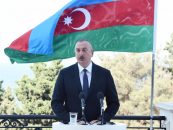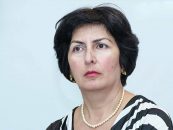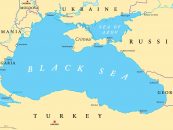By Dr. Vakhtang Maisaia, Professor, Caucasus International University (CIU)
Armenia is still perceiving its security dilemma at national and regional levels. The country’s foreign policy is really dwelling and is being balanced between Russia and the USA. At once hand, Armenian Prime-minister Nikol Pashinyan is still gambling the Kremlin geopolitics but on the other hand, he is deeming to recall the USA incumbent Biden’s Administration stay and preserve its presence in the region. The two-fold foreign policy balanced positions are tracing uncertainty positions of Nikol Pashinyan’s geopolitics. In addition, even the EU was invited by the Armenian side to be preserved in the regional geopolitics (for instance, the EU has decided to send up to 50 monitoring experts to Armenia along the international border with Azerbaijan to monitor, analyse and report on the situation in the region. This decision followed a quadripartite meeting between President Ilham Aliyev, Prime Minister Nikol Pashinian, President Emmanuel Macron and EU Council President Charles Michel in Prague on 6 October, 2022). Having considered above-mentioned, one of the political characteristics of the regional geopolitics could be ascribed by realizing three modalities of the security modalities in the Caucasus in 20th century: National Security Concept, National Security Dilemma and National Security Deadlock. Here is definition of the each of these modalities enshrined and how Armenian PM Nikol Pashinyan is striving and dealing with them in the Caucasus region. Therefore, it is interesting review all three approaches of the modalities and its connection with Nikol Pashynian’s policy-making provisions:
National Security Concept – a state’s priority directions and means set to prevent and avert foreign and local risks scenario possibilities, for instance hybrid and conventional wars. The analysis of national security is always conducted in an atmosphere of some controversy, emotion and uncertainty. The major source of controversy is the subjective nature of the problem. National security’s basis is in threats (promises to do harm in the absence of compliance with some condition demanded by the threatening party) and responses to them. Nikol Pashinyan is less prone to change national security concept and its country foreign policy and geopolitical orientation.
National Security Dilemma – enrollment of arms race in such level upon to which national security of a state actually diminished due to military capability flexes, including on expenses of military budget massive allocation. The Caucasus regional security dilemma could be seen on cases of military confrontation between Armenia and Azerbaijan and Georgia and Russian Federation. In this regard, Nikol Pashinyan wants to raise its country national military potential with rising state budget for next year in 50%. In aegis of the state budget, the defense budget would be consisted of $1.2 billion by doing so, Armenia has been increasing its military expenditure since 2018 by 110%. It is clear that Nikol Pashinyan is being faced real security dilemma that could be detrimental to the whole regional security;
National Security Deadlock – political rulesrhip of the country and special conditions of political condition when any decision taken by the political leadership more increases risks occasion from internal as well as external origins. The case is being illustrated on occasion of the “Creeping Occupation” that Russia carries out against Georgia when the Georgian government has the “National Security Deadlock” situation and is unable to response on Russia’s aggressiveness adequately. As for the Armenian political leadership, a making peaceful deal with Azerbaijan, even with Russia’s support and assistance, is to be a real national security deadlock that could be detrimental to Nikol Pashinyan’s political career. However, on the other hand, he is to be facing with the same deadlock if he rejects the proposal of peaceful deal with Azerbaijan and could be detrimental in cause to national survival interests.
On the other hand, the Caucasus states have different friend and threat perceptions and definitions according to their own interests. Even, Armenia and Azerbaijan view each other as threats. While Azerbaijan views Turkey as a friend, Armenia views Turkey as a threat. Moreover, Georgia views Russia as threat, Azerbaijan has some fears of Iran. Meanwhile Turkey is an ally of Azerbaijan, Russia and Iran are allies of Armenia, the EU and the U.S. are strongly aligned to Georgia. Since the perceptions are different in the Caucasus according to states in the region, international organization, alliances or friend states are naturally being different in view of states. So that, the Caucasus has to face this issue. For instance, while one of states in the region prefers to connect with CIS, other states can choose to be in touch with GUAM as an international organization. Same situation is valid during choosing alliances for themselves such as NATO vs. CSTO. The least, the partner or friend state such perception differs from each other.
For Armenia the peaceful deal with Azerbaijan really opens for new opportunity promoting its geoeconomic and geopolitical missions. One of the option for such opportunities could be considered realization of the project “North-South” direction. Adjusting common positions for promoting new geoeconomic project “North-South” transport-transit corridor for transposing goods and merchandizes from China and South East Asian toward Western European direction in aegis of the “Silk Road” geoeconomic program worth in $22 billion and launched by the Chine since 2010. The corridor provides opportunities for involved parties (Iran and Russia) to directly transfer all cargos via their territories further to the EU member-nations directions as shortest land routes and for Azerbaijan for granting status of so-called “Transit Hub” for disseminating the cargos via “North-South” directions where Georgia and Armenia are to be ousted from the “Silk Road” program. That is why after the Summit, Russian President Vladimir Putin proposed to invite Iran for eventual membership into China-Russia run geopolitical community: Shanghai Cooperation Organization (SCO).
How the Armenian leader would deal with his political challenges and threats is matter of time but he is really facing with national security dilemmas in various ways.






